The theme for the 2022 International Day for the Eradication of Poverty (17th of October)

is: “Dignity For All In Practice.” This theme is no doubt well-chosen and most pertinent. The rise in authoritarianism, polarisation, inequality and poverty, are causing several disruptions in peoples’ lives, with huge implications on their rights, thus impacting on their dignity. This demands that we stop and engage with each other so that we interrogate the system, revisit the development model and the nature of governance, in order to obtain a poverty-free society. Failing to address the poverty scourge would only mean growing instability and a persistent threat to prosperity.
The global overlapping crises such as the climate change crisis, the food crisis, the economic stagflationary crisis as well as the spillover effects of the COVID19 crisis and the Ukraine war are causing living conditions to become tougher. A number of fundamental human rights are rapidly eroding, thus making the attainment of the Sustainable Development Goals even more difficult. When a person is unable to feed himself and his family, access a decent job, get a decent shelter, obtain clean and safe water, lead a healthy life, live in a safe environment, it means that human rights abuses are taking place. When poor children are discriminated at school and encounter prejudices of diverse kinds, they often have no choice than drop out of school. Stigma, prejudices and discriminations tend to exacerbate poverty and human rights abuses. These often remain hidden and go unnoticed.
Father Wresinski from ATD Quart Monde aptly notes:
“Là où des hommes sont condamnés à vivre dans la misère, les droits de l’homme sont violés. S’unir pour les faire respecter est un devoir sacré.” The latter resonates with us at People’s Voices Network. It is precisely this which inspired us to engage in a joint collaboration with the Think Tank- Mauritius Society Renewal and the Faculty of Social Sciences and Humanities – University of Mauritius, in order to organise 2 roundtables on the theme “Poverty and Human rights”, scheduled for 27th of October. The first one is more to do with the rights themselves and the second one to do with the effectiveness of certain policies and programs as well as the crucial role that women can play in the eradication of poverty.
The 2 roundtables will bring together voices of some key experts, academics and practitioners, including that of the young, most talented slammer, Zainab Soyfoo, who will speak on:“Decent housing as a fundamental human right.”. The short articles captured in this piece are only highlights of the panelists’ forthcoming interventions. A range of issues and the multidimensionality and crosscutting nature of poverty as well as its implications for human rights, particularly socio-economic rights, are discussed. Policies, programmes and legislations that have been adopted to address the poverty problem in the country are also interrogated. Last but not least, Shirin Aumeeruddy-Cziffra draws from her recent publication “Femmes, de L’Ombre à la Lumière” to make the case for a better representation of women at decision making tables, since women’s perspectives and insights are crucial to eradicating poverty.
Feel free to join us for this important debate. It will be an opportunity to interact on a subject of utmost importance, especially in these very challenging times. The joint roundtables will take place on Thursday 27th of October from 15.30-18.30 at Lecture Theatre 2, University of Mauritius.
AMAR MAHADEW
Interrogating legislations and the law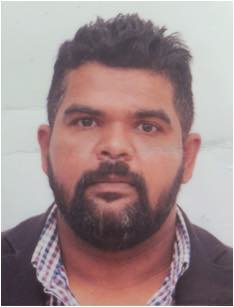
The five policy measures adopted to alleviate poverty are: housing support; community development projects; child welfare programmes; family empowerment; training for employment. It is noted that a few legislations, notably the Social Integration and Empowerment Act 2016, have been enacted to deal with the issue of poverty. It seems clear that successive governments have given priority to policies rather than legislations to combat poverty. The few legislations, mostly indirect in nature, that are there to combat poverty are either purely of an administrative nature or they lack a much-needed human rights-approach to deal with the issue. In addition to this, a critical lack of constitutional framework, characterised by the Constitution of Mauritius being devoid of socio-economic rights, further weakens the application of laws and legislations in the combat against poverty.
…
VINAYE ANCHARAZ
The economy and employment
– The right to work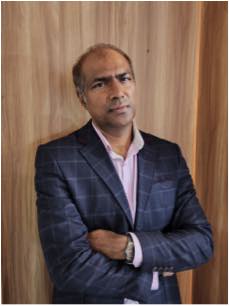
The right to work is a fundamental human right. Employment is key to poverty alleviation (SDG1) and has genetic links to several other SDGs. SDG8, in particular, suggests a relationship between economic growth and ‘decent work’, which has brought renewed focus on growth as a conduit for job creation. But there are limits to growth and so, policymakers should look elsewhere to ensure that their growing labour force is gainfully employed. These dynamics are perhaps nowhere more important than in Mauritius, which has outlived a period of export-oriented full-employment growth and is entering a situation of quasi-jobless growth. Surveying the evolution of employment across three distinct phases since the 1980s and showing that, as growth ceases to be labour-absorbing, it is important to shift policy focus from the quantity of growth to its quality. Issues of expatriate employment against the background of skills mismatch and the recent announcement that the tourism sector is seeking to employ foreign workers also becomes important whether official unemployment figures are reliable, and to what extent they shed light on the growing attrition of the female workforce and the rise of under-employment are illegitimate questions.
…
KRISHNEE APPADOO
The right to a safe environment for a life of dignity
Environmental poverty is the lack of a healthy environment needed for society’s survival and development, and this lack is mainly recognized as the consequence of environmental degradation caused by human activities (Liu, 2011). Anthropogenic environmental degradation affects the rights of people to a safe, green and liveable environment. For example, water pollution impacts on people’s access to clean and potable drinking water; sea level rise disproportionately affects communities whose livelihoods depend on the ocean; air pollution leads to respiratory diseases such as lung cancer; and biodiversity loss impacts on indigenous populations’ habitats. Although SDG 1 is to “End Poverty in all Forms Everywhere”, it is believed that not enough focus is being given by relevant stakeholders working towards poverty alleviation to make the link between poverty and environmental protection. Critically analysing the relationship between poverty and environmental degradation is key to understanding and improving human welfare and dignity. There will be an argument towards encouraging governments around the world to constitutionalize the right to a safe and clean environment. Prioritising environmental and climate protection for the effective abatement of poverty is absolutely necessary if we are to effectively abate poverty.
…
ERIC MANGAR
The right to food – Affordability and accessibility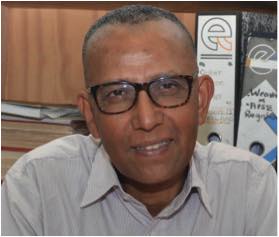
Focusing on nutritional security in link with food security and food sufficiency. The world food system which has no nutritive logic has and will continue to industrialise the food system. Revenue and profits are often the objective of the system and are integrated in industrial capitalism. The system is based on services. This amongst other reasons forces Mauritius to import. An adult needs an average of 3000 Kcal. If we do not get rice and flour, what will be the alternatives in terms of energy? The price of maize has gone up by 200% on the world market and yet maize is needed to make concentrates to feed our broilers which contribute to 40% of protein of our population. Are there alternatives to maize and proteins needed? With the Ukraine war Climate change and the Covid-19 pandemic, the purchasing power of Mauritians has been reduced. Are there alternatives for Mauritians to feed themselves nutritively? How can we curb our expenses and feed ourselves well? Many alternatives are possible at community and individual levels but we have also to look into the marketing strategy. For example, how can we make fish accessible to the middle class and the poor which is a good source of protein.
…
NEENA RAMDENEE
Healthy lives for a poverty-free society
Mauritius has never been a poverty-free society. There was an initiative by the newly elected government in 2014 to establish, with the support of a team of experts from the UNDP (United Nations Development programme) a “Marshall Plan” to eliminate poverty and exclusion. The target was those 37000 people living in absolute poverty. The budget was Rs 2.2 billion to implement the Marshall plan from 2017 to 2020. The objective was “to leave no one behind”. Can we really speak of “leaving no one behind” when health statistics are showing us a very painful story regarding the health situation of the nation? Having healthy, happy lives is directly subject to several factors attached to poverty. Physical poverty and moral poverty are entangled and directly imply unhealthy lives. Physical poverty is a lack of basic needs such as food which leads to famine or malnutrition or hygiene which brings infections or environmental cleanliness (accumulation of water where diseases such as malaria or chikungunya develop). Other basic needs are shelters, clothes. Moral poverty is the stress on parents and grand-parents caused by the lack of funds to live a good and healthy life.
…
WILLIAM MOUTOU
Can the poor benefit from education?
Education is of utmost importance to mankind. We always speak about how it serves a great purpose, but do we question the process enough? We tend to believe that accessibility to education equates quality and equity. At the school I attended, students were treated horrendously by most teachers. Should you happen to be below average, you would be treated like garbage, sometimes even publicly labelled as such, resonating with the findings of the Truth and Justice study. The economically-disadvantaged often had a difficult time since their situation did not give them the edge and as a result most of them suffered a tremendous lack of motivation to strive for greater heights in their study. The treatment inflicted on the students often transposed into frustration leading students venting their anger through all sorts of terrible actions. This worsened their situation and they ended up sinking into the abyss of an unsuccessful fate. How is it possible for Mauritius to speak about quality education when these kinds of occurrences have yet to be tackled? Can we really argue that education is a way out of poverty?
…………………………
RAMOLA RAMTOHUL
Gendered dimensions
Social policies implemented via the welfare state have undoubtedly contributed to the empowerment and autonomy of women and girls in Mauritius. However, poverty is increasingly affecting women in the country despite the safety measures implemented by the state. In 2017, 11% of the population of women was living below the poverty line of Rs 7,509 compared to 9.6% of men (Statistics Mauritius, 2020). Women are over-represented among the unemployed and they have a lower labour force participation rate, with many involved in the informal sector. Female headed households also experience a higher incidence of poverty than male headed households. Women who were already in a precarious situation find themselves worse off following the effects of the Covid-19 pandemic on the economy. If the gender dimensions of poverty remain unattended women may become more vulnerable and at greater risk of finding themselves in precarious situations.
…
NICOLAS RAGODOO
The opportunities and constraints of CSR…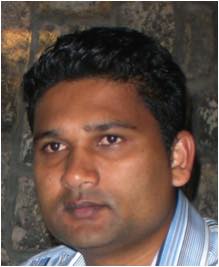
Whilst there were high hopes with regards to the potential of Corporate Social Responsibility (CSR) in terms of fighting against poverty, and the introduction of a pioneering mandatory CSR model in Mauritius, there has been, over time successive changes brought to the CSR legislation and framework which have not necessarily contributed towards the establishment of a focused and long-term intervention strategy. This has resulted in the resurgence of one-off and piecemeal approaches which are unlikely to bring long-term results with regards to the successful empowerment of the disadvantaged population. There is a need for a coordinated approach, where all the stakeholders involved seek to address the issue in a synergic way in order to put all the chances on our side. It is also high time to revisit our outlook with regards to the real social responsibility of organisations in terms of poverty alleviation.
…
DEEPA GOKULSING
Empowering the poor – Accompaniment
« Empowerment » means various things to different people and covers issues such as good governance, the transformation of the economies in promoting self-reliant human-centered development, capacity building of the community through creativity, innovation and commitment to sustainable development goals. The concept and strategy of empowerment is a multi-faceted and a multi-dimensional process and embodied in the principles of inclusiveness, transparency and accountability. Empowering the poor means that the latter themselves are involved, engaged and being heard in the development process. Though the provision of
financial aid for the poor is a common strategy for various decades now for both national governments and international agencies, another approach known as ‘accompaniment’ is now being used to break the poverty cycle. Providing emotional support/accompaniment and building trust are also essential ingredients. Such accompaniment can contribute to the development of a holistic approach in addressing poverty reduction. The long-term holistic accompaniment model adopted by the NGO ‘Lovebridge’ can perhaps be a tool to replicate in certain deprived zones.
…
ANURADHA NUNKOO
Womens’ Voices – Grassroots perspectives for poverty alleviation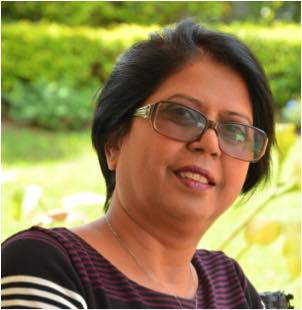
Jawaharlal Nehru, India’s first Prime Minister, realised that “To awaken people it is the woman who must be awakened. Once she is on the move, the family moves, the village moves, the nation moves”. This was decades before national and international organisations such as the United Nations and the World Bank put women’s empowerment high on their agendas as the key to sustainable development and poverty alleviation. It is widely acknowledged that including women in entrepreneurship is necessary for a nation’s economic development. But challenges such as limited availability of funding and finance, acceptance as a leader juggling responsibilities continue to impact on women entrepreneurs. Covid-19 added to the troubles of women entrepreneurs, many of whom had to struggle to keep their businesses afloat. The challenges faced by women entrepreneurs are rooted in gender inequality. Women business owners face discrimination from several quarters—at banks, in board rooms and from family and professional contacts. The knowledge that the odds are stacked against them can undermine the confidence of businesswomen. The resultant lack of clarity and self-belief only adds to the problems of women entrepreneurs, as it sets them up for failure when they actually could have flourished.
….
SHIRIN AUMEERUDDY-CZIFFRA
More women at the decision making table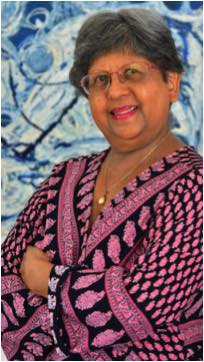
Statistics show that there are more women than men involved in social and community work. They are doing the caring at different levels, family, extended family, and community in many different aspects. But they have little recognition for this time consuming and hard work. However, we see few women in decision making roles whether it be in organisations, including Trade Unions, or in elected positions at local, regional or national levels where their voices could be heard and their ideas taken on board in a serious way. This is particularly important when speaking of the eradication of poverty and the respect of all human rights. In some countries where women occupy positions of responsibility their policies and strategies have made a lot of difference during the Covid Pandemic.



